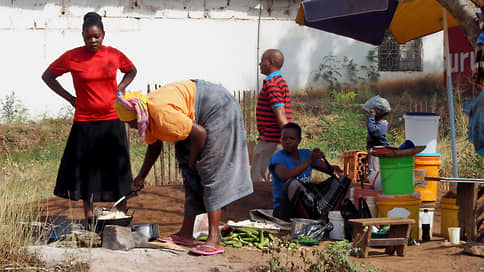According to ACRA estimates, 27 developing countries are now in a state of “financial stress”
[ad_1]

The growth of key rates in the world and increased external risks so far have a limited impact on developing countries, follows from the ACRA review. According to analysts’ estimates, 27 such states are now in a state of “financial stress” (based on Eurobond quotes), mostly with small economies. It is noted that developing countries were able to learn from the previous crises of 1998 and 2008 and now, as a rule, are proactive. In addition to the International Monetary Fund (IMF), they now have other sources of external support – these are funds from China, the Persian Gulf countries, and India.
Analysts from the ACRA rating agency studied the impact of external shocks in recent years on developing countries. In the review of the agency available to Kommersant, it is noted that, following the developed countries, the central banks of developing countries also switched to a cycle of raising rates. As a result, the cost of borrowings increased both in foreign and national currencies, and the depreciation of a number of national currencies put additional pressure on prices.
As a consequence of all this, the credit quality of many developing countries has deteriorated, the number of defaults has increased. Of the developing countries that have access to the international capital market on market terms (issued Eurobonds), 27 countries are now in a state of financial stress (the spread on their securities exceeds 700 basis points). Eight countries have already defaulted.
The total debt on Eurobonds of 27 “stressed” countries is $407.6 billion, while the total volume of such securities of developing countries is $1.4 trillion.
ACRA notes that so far we are talking about relatively small economies (21 of them have a nominal GDP of less than $100 billion), which are concentrated mainly in two regions – sub-Saharan Africa and South America. Relatively large economies in the “list of 27” are Ukraine, Argentina, Pakistan, Egypt and Nigeria.
The scaling of the crisis, according to analysts, is constrained by accumulated experience and external support. Many developing countries took into account the experience of previous crises, some, including Russia and Brazil, began to raise rates even earlier than developed countries. The qualitative change in the situation was also facilitated by the growth in the number of countries with a floating currency regime (62 in 2021 against 40 in 2007), the development of domestic capital markets and the active implementation of stress tests (in particular, as part of assessing the debt burden of the IMF).
The external support that developing countries are asking for is not only growing, but also transforming.
Countries that found themselves on the verge of losing macroeconomic stability, in addition to the IMF, also have alternative sources of funds. Now it is not only China, which has traditionally been the largest creditor of developing countries, but also India, as well as the countries of the Persian Gulf.
Turkey is a prime example of a country that seeks external support from partner countries rather than from the IMF. Recall that this country pursued an unconventional monetary policy (reducing the key rate with rising inflation), which forced it to look for additional sources of replenishment of foreign exchange reserves, concluding, in particular, currency swap agreements with Qatar (for $15 billion) and the UAE (for $5 billion). It should be noted, however, that after the return of Mehmet Simsek to the post of Minister of Finance in the Turkish government, the economic policy of this country will probably become more traditional (see “Kommersant” dated June 5).
ACRA notes that the current state of developing economies cannot be called sustainable. Prevention of a financial crisis will be possible only with increased transparency, development of national markets and mechanisms for mutual support of states. Among the specific measures that could be taken by the authorities of developing countries are fiscal consolidation, saving budget revenues brought by high inflation, and developing government debt markets in national currencies.
[ad_2]
Source link






